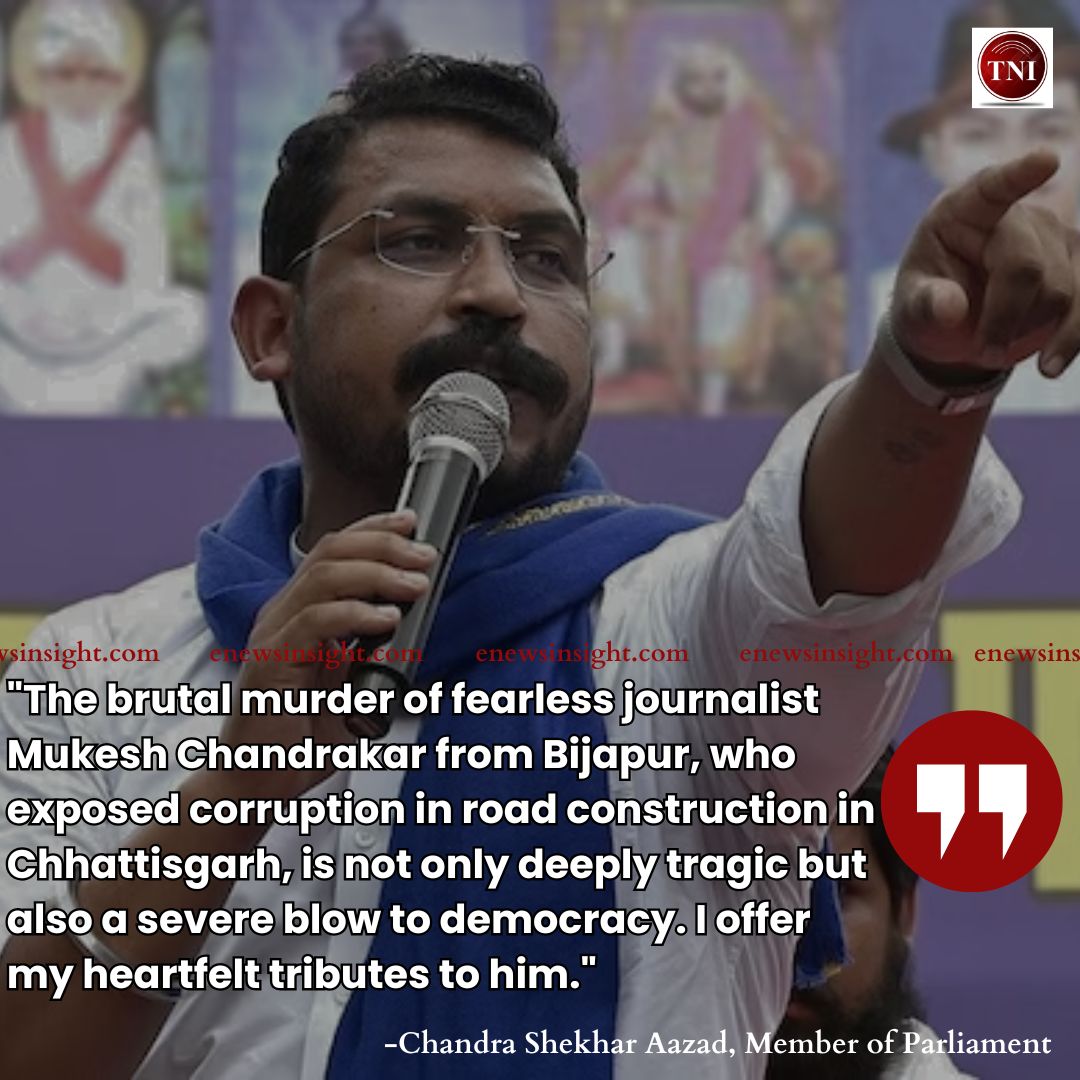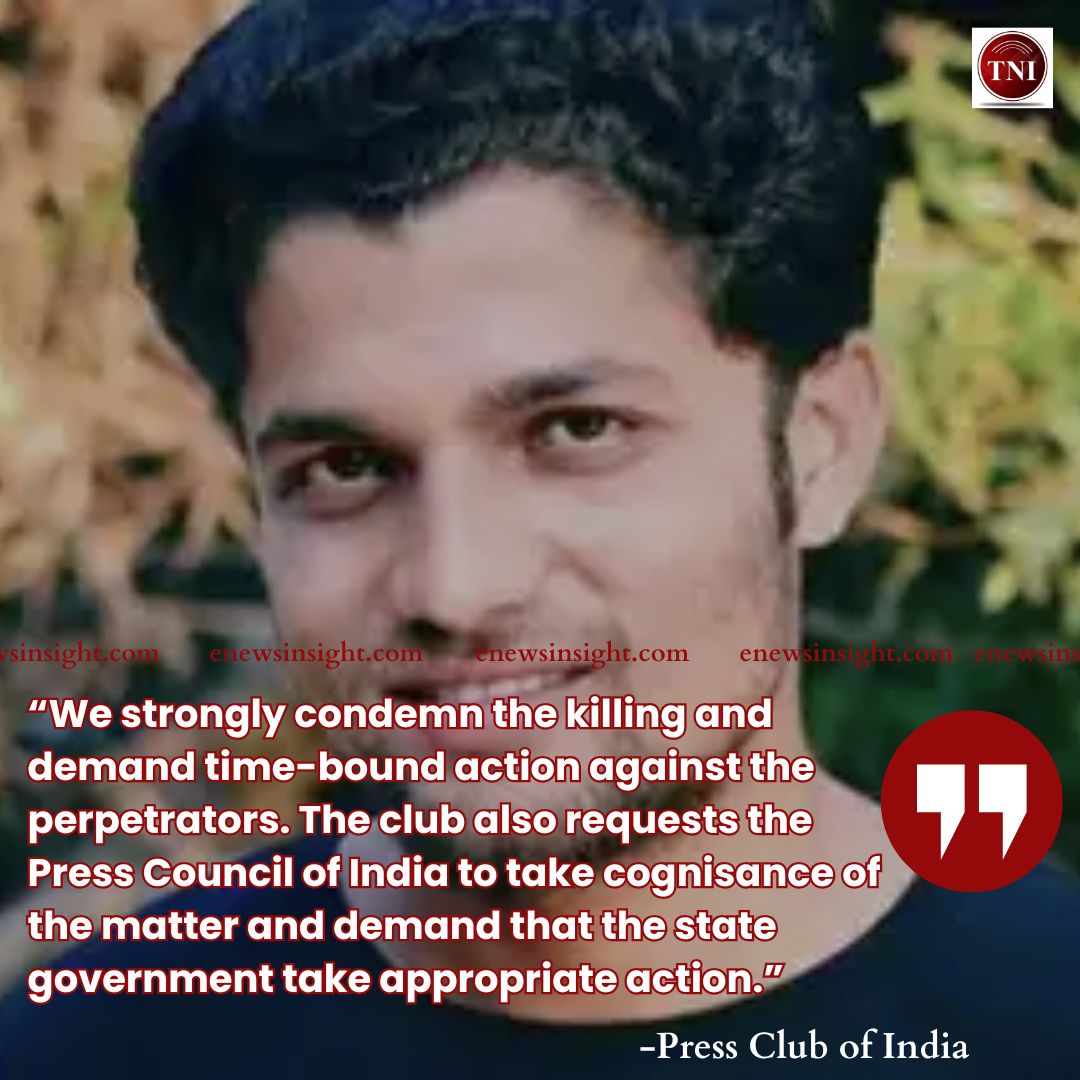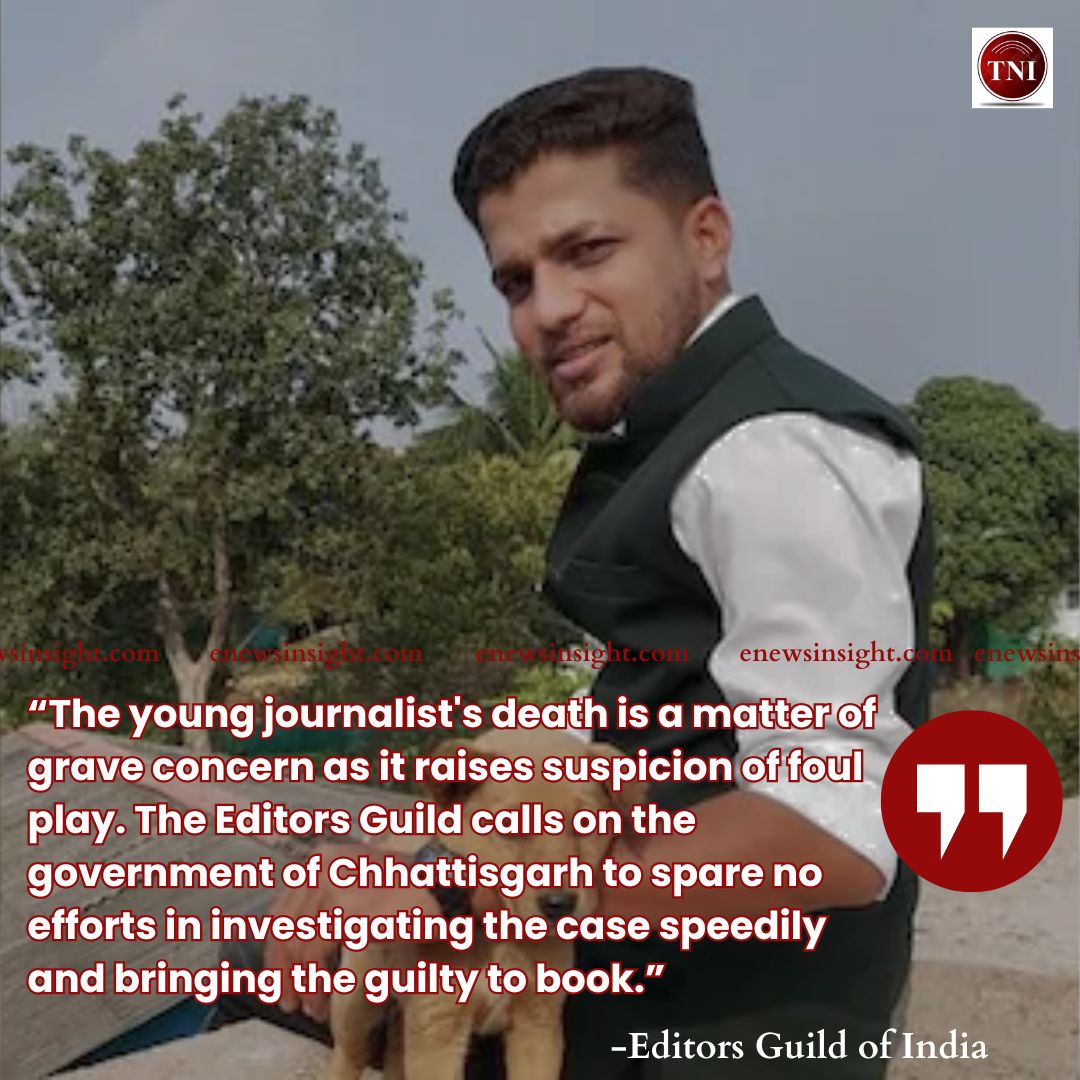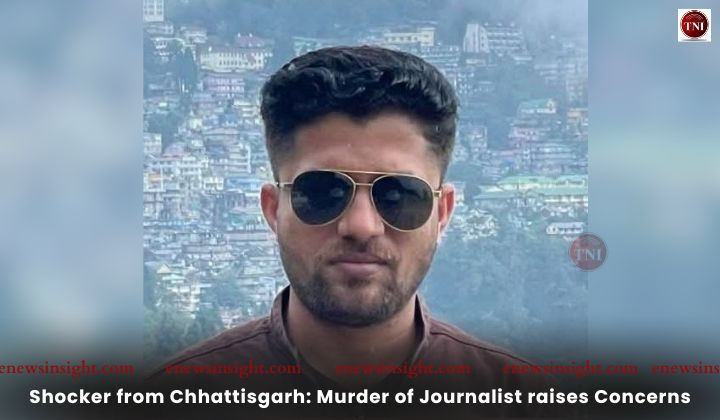TNI Bureau: The tragic and shocking murder of journalist Mukesh Chandrakar has once again brought to the forefront the growing dangers faced by journalists in India, especially those who dare to expose corruption. The 28-year-old reporter’s body was found in a septic tank on January 3, 2025, after he had gone missing on January 1, shortly after meeting with a contractor named Suresh Chandrakar. Mukesh had recently exposed a major corruption scandal involving a Rs 120-crore road construction project, and it’s no surprise that many are now speculating that his death is linked to this investigation.
Mukesh Chandrakar began his career in journalism in 2012 and worked as a freelance journalist for news channels, including NDTV. He also had a YouTube channel called ‘Bastar Junction’, which has around 1.59 lakh subscribers.
What’s even more alarming is the revelation that the key accused in his murder is none other than his own cousin, Ritesh Chandrakar. The fact that Mukesh was allegedly killed by someone within his own family, over a conflict related to his reporting, sends chills down the spine. It paints a grim picture of the lengths to which certain people, especially those with power and influence, will go to silence the truth.
Also Read: Odisha Pavilion to Showcase State’s Heritage, Modern Growth at Pravasi Bharatiya Divas
Mukesh Chandrakar was known for his fearless journalism, often reporting on sensitive issues like corruption and the influence of powerful contractors in the Bastar region. His role in securing the release of a CRPF jawan kidnapped by Maoists back in 2021 had already made him a well-known figure. But it is his recent investigation into the irregularities in the road project that seems to have cost him his life. His hard-hitting exposé into how a road project’s cost ballooned from Rs 50 crore to Rs 120 crore without any significant work being done appears to have shaken the contractor lobby. And it is this lobby that is now suspected of orchestrating his murder.
Chandra Shekhar Aazad, Member of Parliament and Chief of the Azad Samaj Party – Kanshi Ram, condemned the brutal murder of journalist Mukesh Chandrakar, calling it a grave tragedy and a direct assault on democratic values.
Chandrakar, known for his fearless reporting on corruption in road construction in Chhattisgarh’s Bijapur district, was found murdered under circumstances that have sparked outrage among media organizations and civil rights groups.
In a strongly worded statement, Aazad expressed his deep sorrow over the loss, stating, “The brutal murder of fearless journalist Mukesh Chandrakar from Bijapur, who exposed corruption in road construction in Chhattisgarh, is not only deeply tragic but also a severe blow to democracy. I offer my heartfelt tributes to him.” He further emphasized the need for justice, urging Chhattisgarh’s Chief Minister to take swift action against those responsible. “I urge Chhattisgarh Chief Minister to ensure that the culprits of such a heinous and punishable crime face the harshest possible punishment,” he added.

Support Independent Journalism? Keep us live.
It’s difficult not to draw parallels between Mukesh’s murder and the broader issue of press freedom in India. Journalists in many parts of the country, especially those working on stories involving corruption, often find themselves at risk. In regions like Bastar, where local contractors have a strong grip on both political and economic power, investigative journalism is an especially dangerous profession. Mukesh was not the first, and unfortunately, he won’t be the last, to suffer due to his profession.
The involvement of powerful political figures in this case has added another layer of complexity. Suresh Chandrakar, the contractor at the center of the scandal, is said to have close ties with political leaders.
While the police have arrested some of the accused, including Ritesh and Dinesh Chandrakar, Suresh is still on the run. His association with certain political factions has sparked a war of words between the ruling party, Congress, and the opposition, BJP. This political angle further complicates the issue, raising concerns about the safety and independence of journalists, especially when their work threatens the interests of powerful individuals.

The murder has also sparked widespread protests, with journalists and media organizations calling for justice. The Raipur Press Club and the Editors Guild of India have condemned the killing, emphasizing the urgent need for a thorough and swift investigation. There are also calls for greater protection for journalists, particularly those working in hostile environments like Bastar.

What is perhaps most disturbing about this case is how it reflects the growing culture of impunity when it comes to attacks on journalists. Despite the police’s efforts to investigate the matter, there is still a sense of fear that the case may not lead to justice. The contractor lobby, political connections, and the silence of those in power seem to suggest that the life of a journalist, especially one daring to expose corruption, is not valued enough to bring about the required accountability.
This tragedy must serve as a wake-up call for the government and society at large. The safety of journalists needs to be taken more seriously, and the authorities must ensure that anyone who harms those who report the truth is held accountable, no matter how powerful or influential they may be. Mukesh Chandrakar’s death should not be just another statistic in the ever-growing list of journalists killed for doing their jobs. His murder must be the catalyst for change in how we protect the voices that speak truth to power.
WATCH: 🔴 Simlipal’s Rare and Unique Melanistic Tigers
As the investigation continues, one thing is certain: the murder of Mukesh Chandrakar is a stark reminder of the price many journalists pay for standing up against corruption.


Comments are closed.